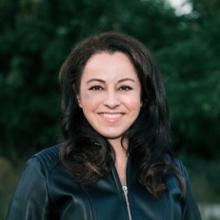The volume of complex health system implementations has increased at a very fast pace over the last several years. This has also driven the need for high quality data to help drive decisions throughout the entire implementation process. Data has often been perceived as an afterthought, in which tracking and extraction begins after a system is live. This approach resulted in gaps, inconsistent decision making, and missed opportunities of improvement. Instead of using data as lower priority to be addressed after an implementation was stable, the data should be used to drive the project. By using the power of data from the very beginning of the implementation planning process, through the post live support, teams can enhance the success and positive impact of the system. This session will explore three major electronic medical record implementations at UCSF and the way data was used throughout these projects. Attendees will learn the importance of embedding quality data into every step of a system implementation. Data was initially used as scope decisions were defined during the planning phase. Data was then used to track progress throughout the development phases and allowed the team to identify any gaps or critical progress issues. Once the systems were live, data was a critical component within the command center. Not only was data distributed and available in a clear format for providers and users, but a data expert was also a key member of every post live meeting with leaders, prepared to research needs throughout the discussion. This strategy helped teams identify immediate impacts to patient care, patient safety, and financials, and address any critical changes real time. After the systems are live and stable, data would continue to be used to support enhancements and training gaps. This is now an established clinical systems strategy in which data experts are consulted at the start of every health system project that begins scoping at UCSF.


